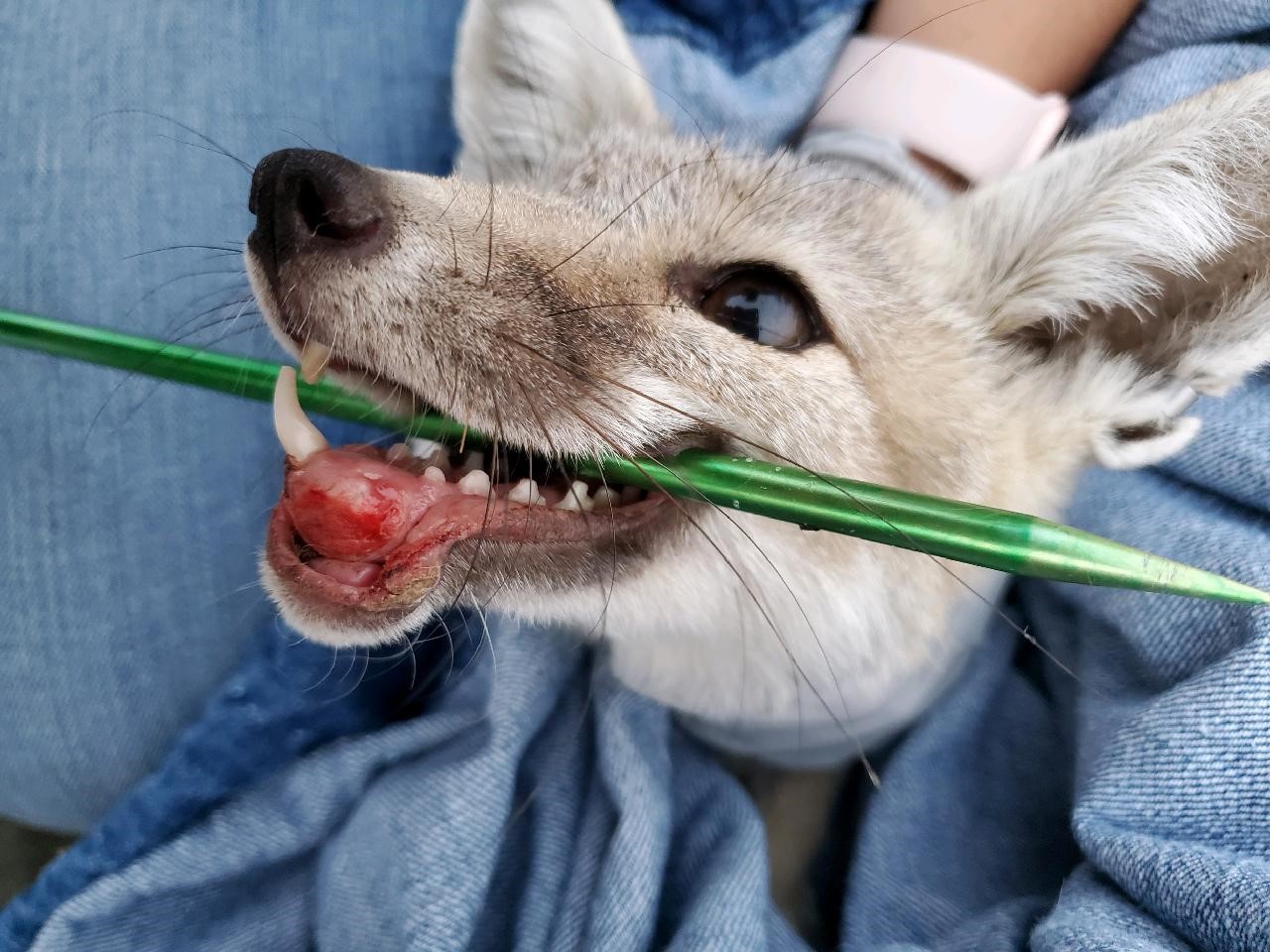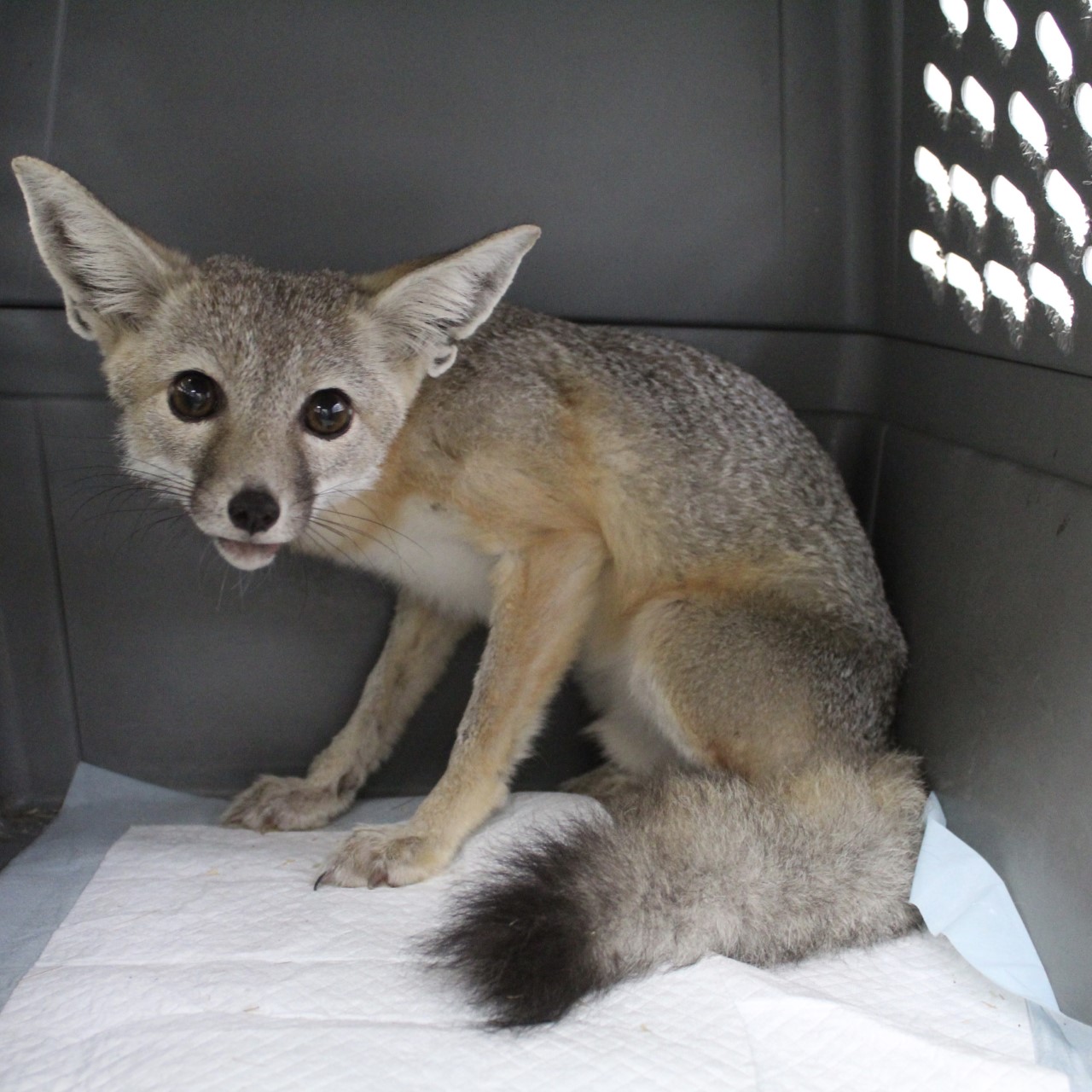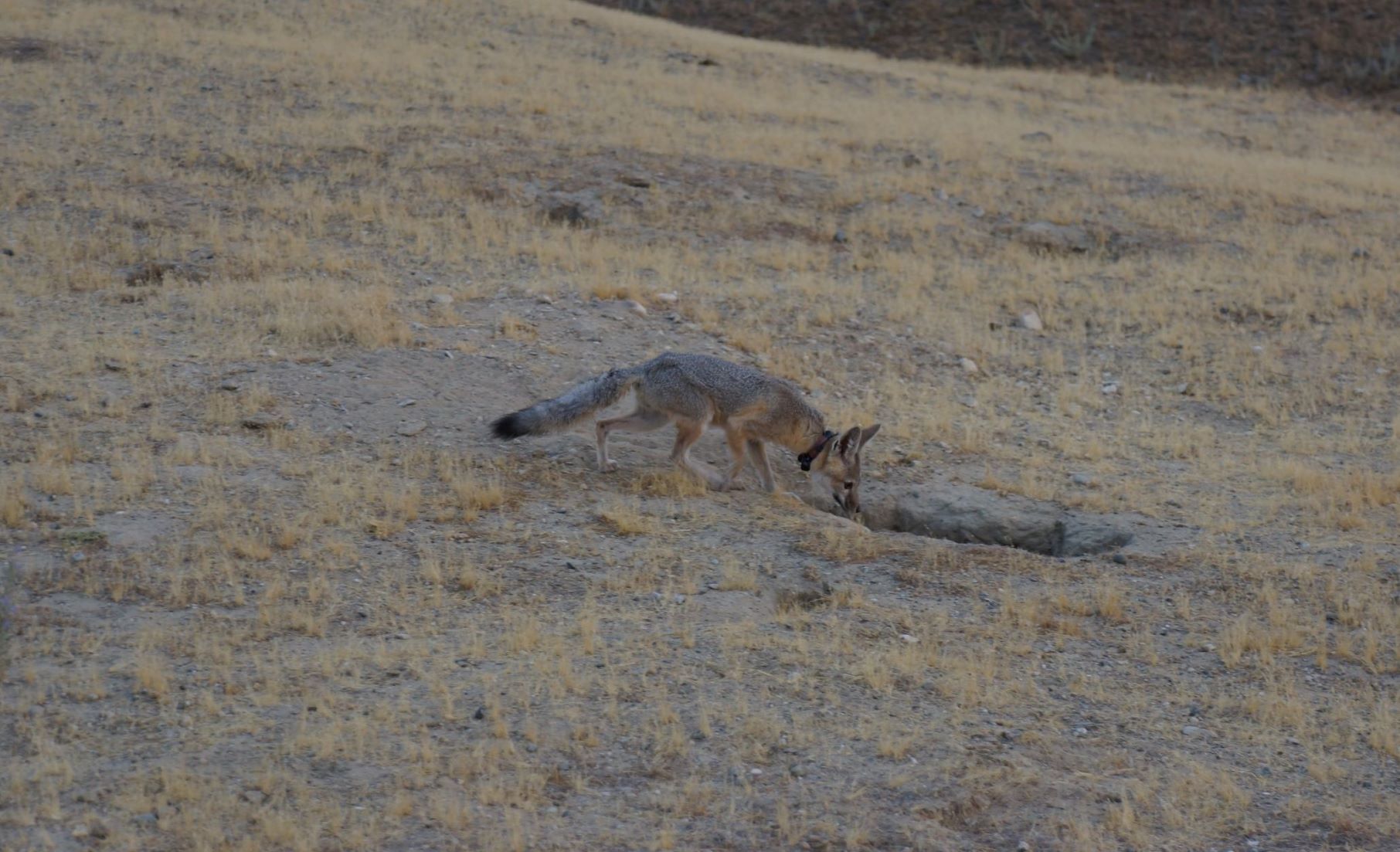San Joaquin Kit Fox Gets Help at CWC

Kit fox captured by biologists with ESRP. Biologists quickly recognized that something was wrong with his lower lip. A knitting needle is used to safely assess the injury and the rest of his mouth – the metal is soft and allows him to bite down without biting any fingers! Photo credit, Erica Kelly (ESRP).
On September 15th, we were contacted by the California Department of Fish and Wildlife (CDFW) to assist with an injured adult male San Joaquin kit fox. These endangered foxes are part of a study managed by the California State University, Stanislaus’s Endangered Species Recovery Program (ESRP) where they document the health and survival of kit foxes in their native range. The biologists also noticed that he had lost over a pound and a half since they last found him in November 2019 and were concerned about the extent of the injury and how it would affect his survival.
While we were waiting for our new vet to start next month, we contacted Dr. Curtis Eng of Western University of Health Sciences, College of Veterinary Medicine. Dr. Eng – who volunteers his time at Pasadena Humane – was able to coordinate an immediate triage and treatment time for this special patient with Drs. Pyrdek and Hardy. While we receive hundreds of wild animals from Pasadena Humane each year, this was the first time we had brought them a patient.
Once we arrived at Pasadena Humane, Drs. Pyrdek, Eng and Hardy, assessed the kit fox and suspected the injuries to be due to a previous traumatic degloving incident in which the skin of the lower lip was pulled away from the gums. He also had an infected, broken upper canine and these injuries were likely preventing him from hunting prey and eating normally. The doctors felt that surgical removal of the broken canine and cosmetic repair of the degloved skin would improve this kit fox’s quality of life and give him a second chance back in the wild. One interesting fact about kit foxes is that they are the only wild canid to live underground throughout the year. This unique survival strategy helps them stay cool in the summer and warm in the winter. Researchers with ESRP suspect that this kit fox’s injuries were from a badger that may have attacked him while sheltering in his den.
 Directly after the operation, he was taken to CWC for rehabilitation and assigned Wildlife Technician, Cambria Wells, to be his caretaker and monitor his recovery and help him gain some weight back. CDFW and ESRP also wanted to be certain that he could capture his main dietary staple, the kangaroo rat, and that he could fully open his jaw. Over the course of 12 days, we kept a close eye on his sutures, his body weight and body condition, and his demeanor. Luckily for us, he was an easy patient with a quick recovery and a great appetite! During his stay at CWC, we had daily communication with Drs. Pyrdek and Eng, the biologists with ESRP, and CDFW. Their advice was instrumental in his quick recovery!
Directly after the operation, he was taken to CWC for rehabilitation and assigned Wildlife Technician, Cambria Wells, to be his caretaker and monitor his recovery and help him gain some weight back. CDFW and ESRP also wanted to be certain that he could capture his main dietary staple, the kangaroo rat, and that he could fully open his jaw. Over the course of 12 days, we kept a close eye on his sutures, his body weight and body condition, and his demeanor. Luckily for us, he was an easy patient with a quick recovery and a great appetite! During his stay at CWC, we had daily communication with Drs. Pyrdek and Eng, the biologists with ESRP, and CDFW. Their advice was instrumental in his quick recovery!

Our patient shortly after being released, wearing a special collar that will allow biologists to track his movements post-surgery. When the study is over, his collar will be removed. Goodbye and good luck!!Photo credit, Tory Westall (ESRP).
While two weeks seems like a short time to recover from such an injury, kit foxes are monogamous and form pair-bonds that last a lifetime. It was important to get his injuries treated as soon as possible so that he could be released back into the wild and return to his mate, where they had just finished raising pups. That day finally came on September 28th and he was picked up by a CDFW biologist and returned to his territory and his mate. His mouth was healed, he gained over a pound, and was full of energy! Thanks to programs like ESRP and their partnerships with rehabilitation centers, the USFWS, and CDFW, the future for these amazing little foxes looks bright!
